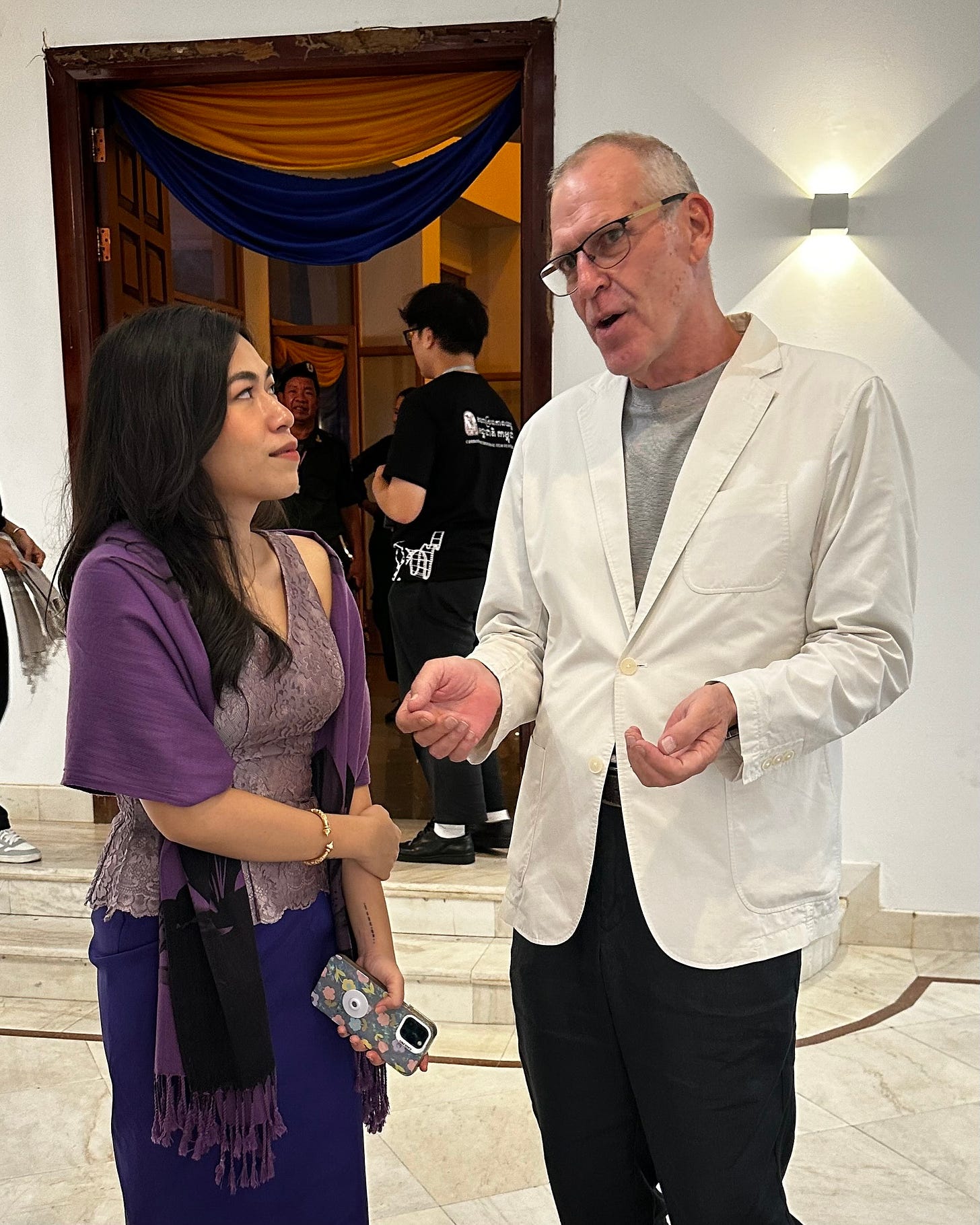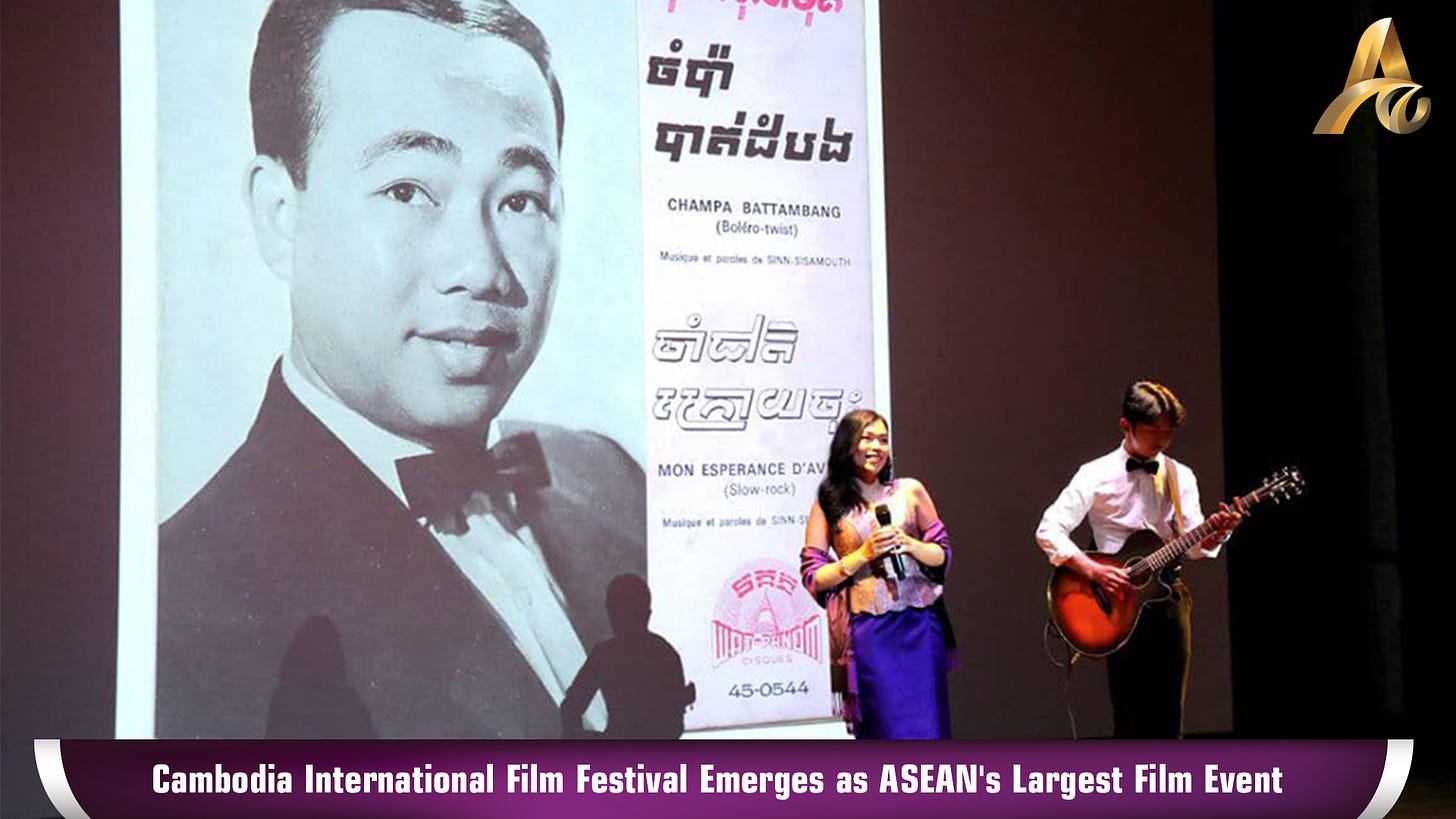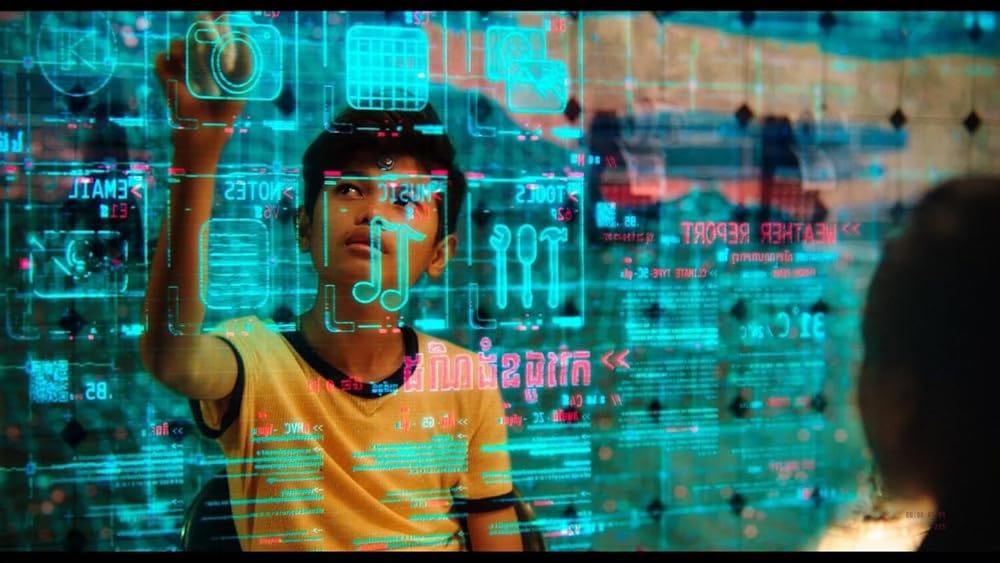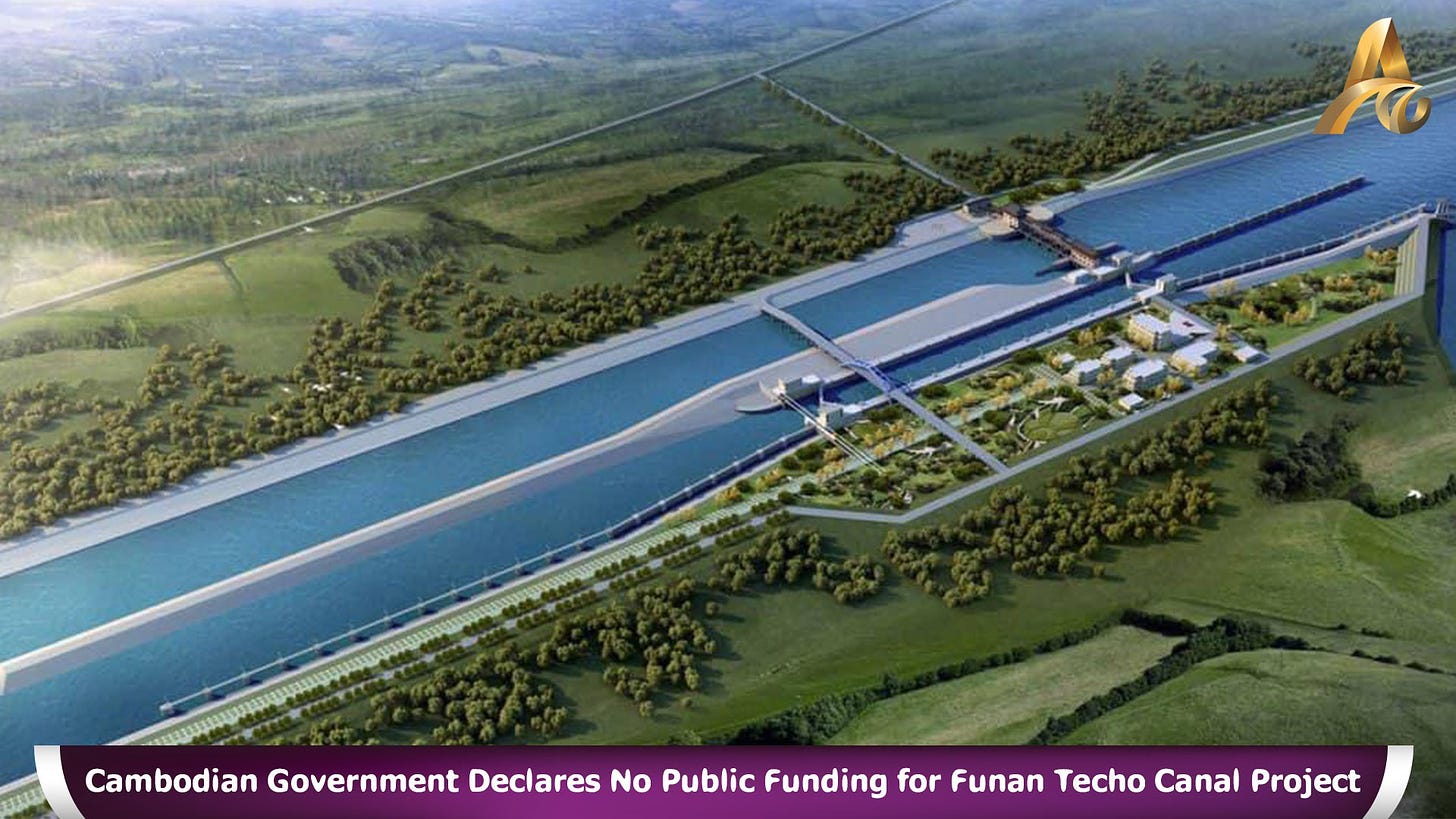Cambodian Upgrade
CIFF13 is ASEANs Largest Film Festival, Sihanoukville gets Five Star Upgrade, Cyber University Network, Young Filmmaker Education, New National Laboratory, Funan Techo Canal & National Solidarity
Cambodia International Film Festival Emerges as ASEAN's Largest Film Event
Phnom Penh, June 26, 2024 – The Cambodia International Film Festival (CIFF) has established itself as the premier film event in Cambodia and the ASEAN region, according to Dr. Phoeurng Sackona, the Cambodian Minister of Culture and Fine Arts. The announcement was made during the opening ceremony of CIFF 2024 at the Chaktomuk Theatre in Phnom Penh on June 25.
The festival this year showcases nearly 200 films, including short films, feature films, documentaries, and animations from 41 countries. These films will be presented across various venues in Phnom Penh over the festival's five-day duration, the Minister added.
Dr. Sackona emphasized CIFF’s pivotal role in enriching Cambodia’s film environment and its key contributions to promoting the nation as a hub for both national and international filmmaking. She highlighted how the annual event bolsters Cambodia's image globally, reflecting the nation’s peace, political stability, and ongoing infrastructural development under the Win-Win policy.
Chea Serey, Governor of the National Bank of Cambodia and Honorary Patron of CIFF 2024, echoed the sentiment, urging the public to take advantage of the diverse film selections available. “Movies inspire and provoke a gamut of emotions from laughter to tears. Cinema is an art form that allows us to dream and think. Let’s embrace this chance to enjoy it to the fullest,” she stated in a Facebook post.
Running from June 25 to 30, the 13th CIFF not only serves as a showcase for global cultures and a platform for idea exchange, but also acts as a meeting point for emerging and established film professionals to display their work.
Organized by the Ministry of Culture and Fine Arts, the festival is a collaborative effort involving the Cambodia Film Commission, Bophana Centre, prominent players in the film industry, cinemas, sponsors, and filmmakers, reinforcing its status as a key cultural event in the region. EAC News also serves as a media partner.
Read more here.
Cambodia’s Sihanoukville gets Five Star Upgrade
By Kiri Post
Two projects in Sihanoukville with an investment of nearly $600 million have received incentives from the Council for the Development of Cambodia and are estimated to have a positive impact on the economy of Sihanoukville.
On 28 February, the Council for the Development of Cambodia (CDC) held a discussion and evaluation of two companies' investment proposals.
Ban Dao Investment Co., LTD has invested $574,000,000 in the construction of a 2,870-key five-star hotel in Poy Tamong, Sangkat 4, Sihanoukville.
Haoruidar (Cambodia) Co., LTD has an investment capital of $12,350,190 in the construction of a local fruit processing plant for mango, pineapple, jackal and turmeric, in Kampong Seila commune, Kampong Seila district, Sihanoukville.
The panel also assessed the appropriateness, qualifications and feasibility of the investment project, and the CDC carefully analyzed economic and social issues, as well as identifying more effective and efficient management methods.
Following the discussion and evaluation meeting, the two investment projects were given approval, along with an assessment that will help Sihanoukville's economy continue to grow. Additionally, Sihanoukville's development will become more focused, making it an economic corridor that benefits Cambodia.
Long Dimanche, spokesperson and deputy governor of Preah Sihanoukville, told Kiripost that the agriculture project will create 800 jobs. However, he was unable to estimate how many jobs will be established from the five star hotel project.
“During the economic recovery from the Covid-19 and the global economic crisis, this investment has signified trust from investors on political stability and security, safety and stability in our country, as well as in Sihanoukville province,” he said.
“Therefore, investors continue to invest in our country. And it will keep attracting other investors and tourists to visit Sihanoukville more.”
Hong Vannak, an economic researcher at the Royal Academy of Cambodia, believes that the projects will bring positive impacts to Cambodia's economy as a whole.
“When Japan comes to invest in Cambodia, we can showcase this to other investors to see our country’s suitable and good conditions which allows them to trust us to do investment,” he said.
“It is also responding to the government policy that setted to attract more investors through economic diplomacy by visiting other countries. It also highlights our country’s potential in many sectors that investors can consider.”
Vannak added, “Responding to the agricultural policy, Cambodia has good weather suitable for doing agriculture, and attracting more investors in this sector.”
It should be noted that after the 7th National Assembly Election 2023 and the launch of a special investment promotion program in Sihanoukville, there is an interesting upward trend reflecting the confidence in the political situation and the investment climate in Cambodia by foreign investors.
In addition, Cambodia ranks first among countries with foreign direct investment (FDI) momentum with an Index Score of 96.11 out of 100 points, according to FDI Standouts Watchlist 2024. The government has been continuing to attract business people as well as strengthen bilateral cooperation with other countries and regional and global cooperation frameworks.
Read more here.
Cambodia’s Cyber University Network
By Heng Panha (AKP Phnom Penh, June 25, 2024)
The Cambodia Cyber University Network (CCUN) was officially launched here this morning under the presidency of Prime Minister Samdech Moha Borvor Thipadei Hun Manet.
This is a new achievement of the higher education sector in Cambodia, and it encourages all private and public higher education institutions to further pay attention to technological advances to promote education in the country, he said.
“Technology and ICT are the necessary skills that must be encouraged and supported,” the Premier underlined.
Samdech Thipadei Hun Manet also encouraged all members of the CCUN to share data centre between them as some universities cannot afford a data centre.
Regarding the establishment of the CCUN, H.E. Hang Chuon Naron, Minister of Education, Youth and Sports, said CCUN has been created by 12 public and private higher education institutions aimed at sharing the full use of infrastructure and academic resources among member universities, providing the ability to transfer study loans between member universities and offering open study for local and global scholars.
As of 2024, the CCUN’s members have jointly produced lesson contents for 69 subjects for 18 specialised undergraduate programmes for a total of more than 5,000 students, he pointed out.
Those 12 member universities include the Institute of Technology of Cambodia, the Royal University of Phnom Penh, the National University of Battambang, the Svay Rieng University, the Heng Samrin -Thbong Khmum University, the Royal University of Agriculture, the National University of Management, the Chea Sim Kamchay Mear University, the University of Kratie, the Battambang Institute of Pedagogy, the Phnom Penh International University, and the Angkor University.
Read more here.

Cambodia’s Young Filmmaker Education
By Po Sakun (Cambodianess)
PHNOM PENH – The Cinema & Cultural Diffusion Department will run free short-film production classes for talented young adults who are passionate about the craft. They will be the seventh courses initiated by the Ministry of Culture and Fine Arts with Cine-Hub of the Cambodia Film Commission.
Lasting three months, the training will focus on directing, screenwriting, cinematography and sound mixing. There are also other related subjects.
Department director Pok Borak said this short course is important for the filmmaking industry as there is not yet a filmmaking school. The training will allow the trainees to produce short films with good quality, technical elements and correct film grammar.
“We are also looking for cooperation opening a filmmaking school in Cambodia,” Borak added. However, he did not give further details as the work is in progress.
Cheap Sovichea, director of Cambodia Film Commission, said the young producers thus far had only made films by watching others’ work, without the correct film grammar, while their creativity for screenwriting to attract audiences was still limited.
Making a film includes many technical elements such as composition, sound mixing, lighting, and staging to produce an attractive piece. Therefore, it was important for producers to know all these techniques, Sovichea added.
For starters, trainees should already know how to take photos, read novels or watch movies, and summarize short stories.
“Our course is free. However, they may need a budget for a short-film production with their team at the end of the course. We are looking for the fund, and if our partners could not fund enough, we may need the trainees to fund the project themselves,” Sovichea said.
The films produced by trainees are usually screened at national and international theatres in the country. Good films may also be screened in international festivals, Sovichea added.
Award-winning screenwriter Ines Sothea, who is a trainer in the course, said previous trainees did not watch short films much, and the teaching and learning did not match well at the time.
“They did not watch many short films, so we had a hard time understanding each other,” Sothea said.
Trainees can watch many free and paid award-winning films that are available on YouTube to find their favorite genre and director from whom they can learn. Therefore, they will be able to produce quality short films after the course, she added.
Another trainer, Mony Darung, a director/writer, noted the previous trainees changed a lot in their perspectives, and started watching more movies. They were able to differentiate levels of filmmaking and cinematographic techniques.
“Watching movies produced by various countries allows them to produce films with good quality and national diversity. Movies can change our perspectives and lives,” Darung said.
Sovichea called on all trainees who are selected for the course to join classes regularly to catch up with the program.
The criteria for trainee selection includes those aged 20-to-35. Forty trainees will take part from August to October with the course being divided into three phases.
The first phase is an online class on the weekends, focusing on scenario writing. The second is about screenwriting, directing, cinematography, and sound mixing in a physical classroom. In the third phase, trainees will be divided into three groups with an assignment to produce one short film each.
APPLY BELOW
Applicants can submit their forms — which can be filled online through a Google Form or on the hard copy — at the Cambodia Film Commission every working day or contact +855(0)16 320 895 and +855(0)77 336 654. The deadline is July 6.
New National Laboratory for Science, Technology and Innovation Research
By Meng Seavmey (Cambodianess)
PHNOM PENH — Cambodia will establish the Science, Technology and Innovation National Laboratory (STINL) whose mandate will be to conduct research, studies and development projects in science, technology and innovation.
The announcement was made through a sub-decree signed by Prime Minister Hun Manet and issued on June 20.
The laboratory’s mandate will be to test and assess products from the standpoint of physics, chemistry, microbiology, mechanics, electronics, and/or electricity to determine their quality and whether they meet the requested or necessary criteria, the sub-decree stated.
The laboratory will also conduct research and studies related to the development of science, technology and innovation, and will cooperate with other laboratories of national, international, and private institutions as well as development partners.
And this, to respond to urgent needs in the country’s science, technology and innovation sectors.
“STINL will be responsible for organising the technical infrastructure of the laboratory to develop and respond to the demand in the three sectors for other laboratories with assessment and recognition based on national and international standards,” the sub-decree read.
The laboratory will contribute to developing other laboratories of national institutions involved in the development of science, technology and innovation, and promote public safety and health, the sub-decree read.
STINL will also be involved in collaborative studies and promote, support, and give key recommendations for developing products in the science, technology and innovation sectors.
Its mandate will also include providing support to private educational institutions for testing or assessment in science, technology and innovative areas.
The laboratory will have to gather national and international resources to support its mandate and to accomplish other necessary tasks set by the Ministry of Industry, Science, Technology and Innovation, according to the sub-decree.
Read more here.
Funan Techo Canal & National Solidarity
By Dr. Seun Sam (Royal Academy of Cambodia)
Hun Manet, the prime minister of Cambodia, declared that work on the country's important canal project would begin in early August 2024. The construction of the canal is a major undertaking for Cambodia, garnering the support and solidarity of the populace at large, including opposition party members. Since this initiative will lessen Cambodia's reliance on its neighbors, it will also bring with it different interpretations from some of those nations.
In addition to belonging to ASEAN countries and the United Nations, Cambodia is a member of the Mekong countries which have been working carefully to preserve the environmental issue. Cambodia is the first country that declared to not build more dams along the Mekong River in 2020.
Although Cambodia enjoys cordial relations with many nations, due to its proximity to China, this country has been perceived as a client state of China by some biased-country or the countries that think negatively about China while have big trade exchange with China.
For many decades, Cambodia has enjoyed excellent connections with China, which have been maintained by both the country's current and prior monarchs as well as the country's former prime minister.
China enjoys excellent relations with every nation on the planet, even Vietnam and the US, with whom it has occasionally disagreed over the South China Sea and freedom of navigation. In 2023, Vietnam's trade with China surpassed that of all ASEAN nations combined. Despite this, Vietnam continues to voice complaints about China to the international community.
Cambodia has had numerous conflicts, including invasions by jealous neighboring countries and civil warfare. This nation has struggled to achieve internal peace and stability; fortunately, Cambodia experienced these things after a number of unfortunate events, including the colonial rule by France, the Marshall Lon Nol coup in 1975, the Khmer Rouge regime, and the complex regime that lasted from 1979 to 1989.
Currently, Cambodia is blessed with a peaceful and harmonious populace. The Cambodian People's Party and Hun Sen bring wealth and peace to the country. The inhabitants of Cambodia enjoy an excessive amount of freedom and tranquility and sometimes they are not ready for the future.
While nations who claim to love the Mekong ecosystem continue to build more dams along the Mekong River, Cambodia has suspended construction of new dams since 2020. Vietnam built more dams along the Mekong River, but they also complained to other nations about Cambodia's destruction of the river's ecosystem by constructing one dam within their sovereignty.
There are variations between Cambodia and Vietnam that can be seen if we walk along the borders between the two countries. Vietnam has how many rivers and dams? Are those dams and rivers a part of the Mekong River or not?
Vietnam protested to the Cambodian government for not adhering to the Mekong River Agreement's information requirements after the latter announced plans to build the Funan Techo canal in May 2023. Vietnam contended that the diversion of water from the Mekong tributaries would result in a reduction of downstream water volume and the salinization of the Mekong Delta. The Cambodian government persisted on its own ideas and objectives in the face of Vietnam's criticism. The iteration of Vietnam is very wrong because it is just their imagination and they do not have appropriate research outcome to state but just hallucination and biased interpretation.
The Mekong River Agreement in 1995 is demonstrated differently by Vietnam and Cambodia over the construction of the canal. It also demonstrates that, when it comes to the development of national economies through the Mekong River and the transnational allocation of water resources, it is entitled to control water resources within the boundaries of their national sovereignty, sometimes it is interpreted to be entitled to transfer national water sovereignty.
Since the canal links the port of Phnom Penh to the Gulf of Thailand, approximately one-third of Cambodia's imports and exports are no longer under Vietnamese control. However, the project is motivated by deep-seated geopolitical and historical grievances. Vietnamese government worried too much about the Cambodia’s peaceful canal because Vietnamese government believe that it will be used by the Chinese military in the future. Vietnamese worried too much about China in Cambodia while Vietnam enjoys a very good relations with China and both countries make big trade exchange with each other. It is easy to under the good relations between Vietnam and China by just understanding the trade exchange between the two countries. So why Vietnam worried that China will use the Funan Techo Canal of Cambodia while there are so many Chinese businesspeople and Chinese investment in Vietnam?
The government of Cambodia should make every effort to ensure that the canal project proceeds since the people of Cambodia recognize its great importance and the huge benefits it will bring for Cambodia. The decisions made by Cambodia should be respected by the surrounding nations. Foreign nations ought to be aware of Cambodia's requirements and should not interpret by your means but should deeply study all related factors before making decision to speak about it. Researchers who are interested in talking about the Funan Techo Canal shouldn't use their friendship with one specific country to negatively perceive Cambodians because these are the needs of the people, not a means of rivalry between Cambodia and other nations.
All in all, Cambodian government should work hard to complete the project and push more support for its scholars who are able to work and to explain the outside world about the reality of Cambodia because Cambodia is a victim of the Media outside of Cambodia.
Read more here.








